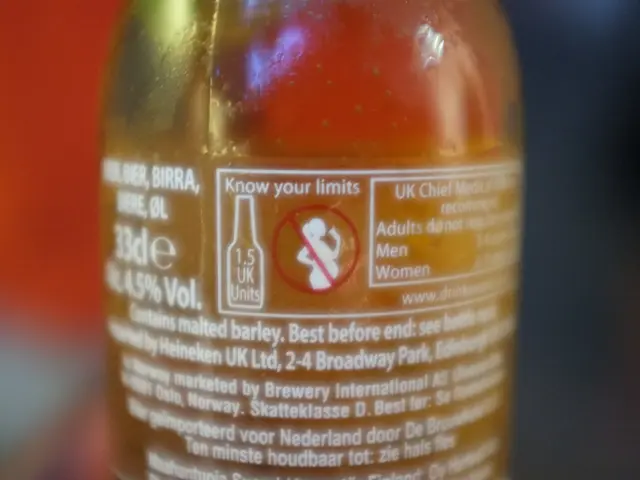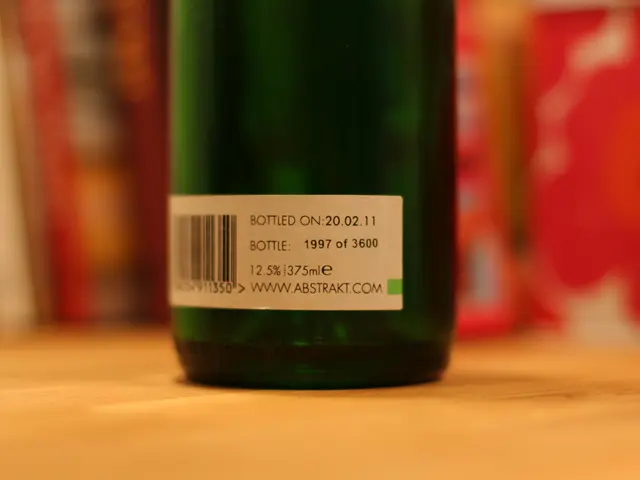Social Networks Disseminate Inaccurate Nutritional Information
Let's Get the Facts Straight:
The wild west of the internet, our beloved social media, has turned into a fertile ground for spreading bogus diet information, fueling unhealthy trends. From Instagram to TikTok, the web is brimming with posts about pseudoscience diets and miracle foods, leaving users misled and causing potential harm.
Researchers dug deep into these online quagmires and found a common theme-nutrition myths flourish in visually engaging formats, particularly on platforms popular with the younger crowd. In a desperate bid for attention, many influencers, with little to no medical or nutritional expertise, peddle extreme diets and snake oil supplements. Promises of instant weight loss or disease cures often catch the eye, but it's the hidden risks that remain buried.
Take, for instance, the craze for 'detox' products. Influencers promote teas, juices, or supplements, claiming they'll rid your body of toxins. But let's get real - your liver and kidneys handle that job naturally. Worse, these products are often devoid of scientific support and may contain harmful ingredients known to induce dehydration or digestive issues. And yet, they are marketed aggressively, riding the tide of misleading claims, given their eye-catching appeal.
Then there are the fasting trends promising rapid weight loss and quick health benefits. While controlled fasting can be safe under a doctor's watchful eye, extreme versions booming on social media encourage dangerously low-calorie intake. Users blindly adopt these habits without considering the long-term implications, such as muscle loss, nutritional deficiencies, and metabolic issues. Worse, when influencers flaunt unrealistic results, followers may feel pressured to try risky eating patterns without understanding the potential harm.
Social media also fuels misconceptions about certain diets curing diseases. Some claim that cutting out specific food groups can eliminate conditions like diabetes or osteoporosis. Ignoring scientific evidence, these claims often lead to severe health problems, including nutritional deficiencies. Yet, they continue to gain traction due to their persuasive presentation.
Instagram and YouTube are the kingpins in this game, with TikTok swiftly climbing the ranks. Many influencers peddle specific diets or supplements to boost engagement, amass followers, or even sell their own wares. Unlike regulated ads, these posts often lack disclaimers or factual information. Surprisingly, algorithms prioritize interactive content, enabling misleading healthy claims to spread faster than accurate, science-based information.
These diet misinformation swamps not only pose physical health risks but also contribute to mental health struggles. Constant exposure to unrealistic body standards and extreme diet trends can lead to disordered eating behaviors, including orthorexia-an obsession with only 'clean' foods. Studies show that younger audiences, especially teens, are particularly vulnerable, increasing their risk of developing harmful food relationships.
The COVID-19 pandemic shone a light on diet misinformation. Throughout the pandemic, false claims about specific foods preventing or curing the virus circulated online. While nutrition supports overall health, no single diet can eliminate the risk of infection. Despite medical professionals' best efforts to counter these claims, misleading posts continued to spread rapidly, underscoring the urgency for stricter regulation of health information online.
Tackling this issue calls for action from multiple fronts. Social media companies could impose stricter content moderation policies to check the rapid spread of false health claims. Verified experts, including dietitians and doctors, should have a more prominent presence on these platforms, providing accurate information. Lastly, users must play their part by exercising skepticism towards diet trends and cross-checking sources before falling for health-related posts.
In a nut shell, while social media offers a treasure trove of information, not all of it is accurate, especially when it comes to health and nutrition. Instead of relying on trending posts, it's always better to consult with professionals to stay on the safe side. Raising awareness about this issue can help create a healthier, more informed online space.
Sources:
How social media spreads diet misinformation-and what experts say must change
Disinformation about diet and nutrition on social networks: a review of the literature
Enrichment Data:
Overall:
Social media platforms like Instagram, TikTok, and YouTube have become breeding grounds for diet misinformation, often spread by influencers with unverified credentials. Here are some specific examples of commonly spread diet misinformation:
Common Misinformation Themes
- Carnivore and Meat-Based Diets: These diets are often promoted as the key to health and wellness, despite lacking solid scientific evidence. They are the most common theme of misinformation, appearing in about 28.8% of posts[1][5].
- General Wellness and Nutrition Misinformation: This category includes a broad range of false claims about health and nutrition, often presented as simple 'hacks' or quick fixes. It accounts for 24.5% of misinformation instances[1].
- Low-Carb and Ketogenic Diets: These diets are frequently promoted as ideal for weight loss or overall health, even though they may not be suitable for everyone. They make up about 23.7% of misinformation posts[1].
- Detox and Cleanses: Misinformation often involves promoting detox products or cleanses as a way to improve health or lose weight, despite a lack of scientific evidence supporting these claims[3].
- Laxatives and Diet Pills: Some influencers promote these products as safe and effective for weight loss, ignoring their potential health risks[3].
Influencer Archetypes
Influencers spreading diet misinformation often fall into three categories:
- The Doc: Uses a medical title to create credibility even if their field of study is unrelated to nutrition[5].
- The Rebel: Employs anti-establishment or conspiratorial messaging to attract followers[5].
- The Hustler: Combines nutrition claims with polished marketing techniques to build a following[5].
These influencers exploit the complexity of nutrition by offering simple, emotionally appealing solutions, often driven by profit rather than scientific evidence[1][2].
- The widespread misinformation on social media about diets, such as pseudoscience claims about carnivore and meat-based diets, detox products, and laxatives, often comes from influencers who lack scientific credentials and push simple, emotionally appealing solutions for profit.
- In an effort to promote health-and-wellness, nutrition, and entertainment, social media platforms like Instagram, TikTok, and YouTube should aim to curb the spread of diet misinformation by implementing stricter content policies, giving prominence to verified experts, and encouraging users to be more discerning and to cross-check their sources for accurate information.








